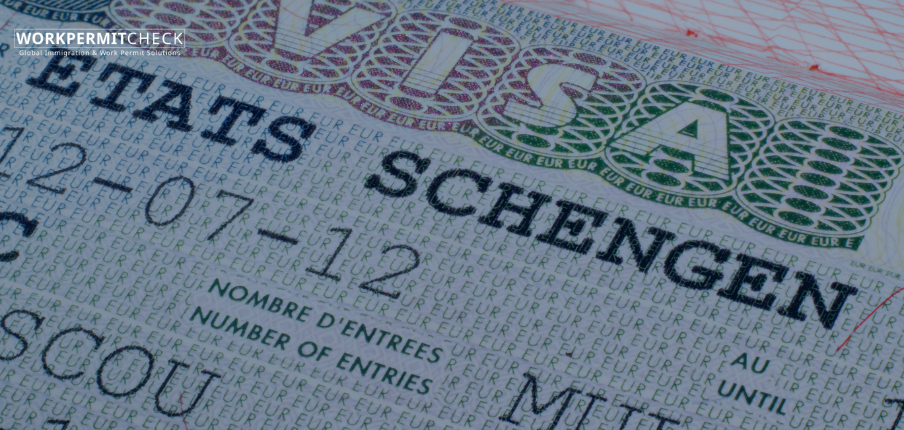Introduction
Germany, as a member of the Schengen Area, offers visa options that allow travelers not only to visit Germany but also to move freely across other countries within the Schengen Zone. However, the extent of your travel rights depends on the type of visa you hold. In this blog post, we will explore whether a German visa allows travel to other Schengen countries, the conditions attached, and how to make the most of your travel within the Schengen Area.
What Is the Schengen Area?
The Schengen Area is a group of 27 European countries that have abolished internal borders, allowing for passport-free movement across most of the continent. Once you enter one Schengen country, you can travel to the others without additional border checks.
Countries in the Schengen Area include Germany, France, Italy, Spain, the Netherlands, Sweden, Austria, and many others.
Types of German Visas and Travel Rights
1. Schengen Visa (Type C)
A Type C visa is a short-stay visa valid for up to 90 days within a 180-day period. It allows travel across all Schengen countries.
Key Features:
-
Valid for tourism, business, family visits, or short training
-
You can travel freely across the entire Schengen Zone
-
Must respect the 90/180-day rule (stay up to 90 days in any 180-day period)
Example: If you receive a Schengen visa from the German consulate, you can travel to Germany, France, Belgium, and other Schengen countries during your stay without applying for separate visas.
2. National Visa (Type D)
A Type D visa is a long-stay visa issued for purposes like work, study, or family reunification in Germany. This visa is country-specific, but under certain conditions, it allows short-term travel within the Schengen Zone.
Key Features:
-
Primary purpose is to stay in Germany for more than 90 days
-
Allows short stays (up to 90 days within 180 days) in other Schengen countries for tourism or business
-
Not valid for employment in other countries unless specifically authorized
Important: You must enter and initially stay in Germany to activate your Type D visa. Using it to go directly to another country can cause entry issues at border control.
Conditions for Traveling to Other Schengen Countries
To travel legally from Germany to other Schengen countries, you must:
-
Hold a valid German Schengen (Type C) visa or a Type D visa with mobility rights
-
Not exceed the 90/180 rule if on a Type C visa or short trip using a Type D
-
Carry your passport, visa, and documentation, especially for flights or hotel bookings
-
Have travel insurance covering the entire Schengen Area (especially for Type C visa holders)
Countries You Can Travel to with a German Schengen Visa
With a German-issued Schengen Visa (Type C), you can visit all 27 Schengen countries:
-
Austria
-
Belgium
-
Croatia
-
Czech Republic
-
Denmark
-
Estonia
-
Finland
-
France
-
Germany
-
Greece
-
Hungary
-
Iceland
-
Italy
-
Latvia
-
Liechtenstein
-
Lithuania
-
Luxembourg
-
Malta
-
Netherlands
-
Norway
-
Poland
-
Portugal
-
Slovakia
-
Slovenia
-
Spain
-
Sweden
-
Switzerland
What You Cannot Do with a German Visa
-
You cannot work in other Schengen countries unless your visa explicitly allows it
-
You cannot exceed the time limits or conditions set by your visa type
-
You cannot enter non-Schengen countries (like the UK, Ireland, or Cyprus) without a separate visa
Tips for Smooth Travel
-
Keep a copy of your visa and entry/exit stamps
-
Carry hotel bookings, return tickets, and travel insurance
-
Avoid overstaying — it may lead to fines, deportation, or future visa bans
-
Understand visa expiration rules before planning multi-country trips
Conclusion
Yes, you can travel to other Schengen countries with a German visa — but the type of visa matters. A short-stay Schengen visa (Type C) allows you full access to the Schengen Zone, while a national visa (Type D) offers limited short-term travel rights. Always stay within the time limits and comply with the terms of your visa to enjoy hassle-free movement within the Schengen Area.
Disclaimer: This article is for informational purposes only. Visa policies and regulations are subject to change. Always check with official sources such as the German Federal Foreign Office or the embassy of your destination country before traveling.




















































































